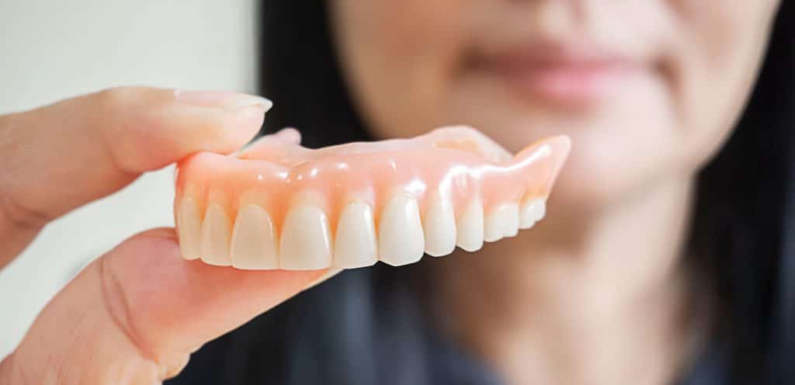
Dentures have been a pivotal solution in restorative dentistry for those who have lost their natural teeth. They provide a way to restore functionality and aesthetics, which significantly impacts one’s quality of life. This article explores the effects of dentures on oral health and daily living, providing insights into their benefits and considerations for optimal use.
Understanding Dentures
Dentures are removable dental appliances designed to replace missing teeth and surrounding tissues. They come in two main types: complete dentures, which replace all teeth in either the upper or lower jaw, and partial dentures, which are used when some natural teeth remain. Modern dentures are crafted from advanced materials such as acrylic resin or a combination of metal and acrylic, ensuring both durability and comfort.
Oral Health Benefits of Dentures
- Restoration of Functionality
One of the most immediate benefits of dentures is the restoration of chewing ability. Missing teeth can impede the ability to eat a varied diet, often leading to dietary restrictions and nutritional deficiencies. Dentures help restore proper chewing function, allowing individuals to enjoy a balanced diet without discomfort.
- Maintenance of Facial Structure
Teeth play a crucial role in supporting the facial structure. Without them, the jawbone can deteriorate, leading to a sunken appearance and changes in facial aesthetics. Dentures help fill the space left by missing teeth, maintaining the natural contours of the face and preventing the bone loss that often accompanies tooth loss.
- Improved Speech
Missing teeth can affect speech clarity, leading to difficulties in pronouncing certain words and sounds. Dentures can improve speech by providing the necessary structure and support for articulating words clearly. This enhancement in verbal communication can boost self-confidence and social interaction.
Daily Life Implications
- Comfort and Fit
The comfort of dentures is paramount to their success. Properly fitted dentures can feel almost natural, but ill-fitting ones can cause discomfort, sores, or even difficulty eating and speaking. Regular adjustments and check-ups with a dental professional are crucial to ensure that dentures remain comfortable and functional.
- Oral Hygiene and Maintenance
Maintaining good oral hygiene is essential when wearing dentures. Even though they are not subject to decay like natural teeth, dentures need to be cleaned regularly to prevent plaque buildup and oral infections. Daily brushing with a denture brush and soaking in a denture cleaner helps keep them in optimal condition.
- Lifestyle Adjustments
Adjusting to dentures can require changes in daily routines. New denture wearers might experience challenges such as difficulty in speaking clearly or eating certain foods. Over time, most individuals adapt to these changes, but initial adjustment periods may include some trial and error in finding the most comfortable and effective ways to use dentures.
Psychological and Social Impact
- Boost in Confidence
The cosmetic improvement provided by dentures can significantly enhance self-esteem. Missing teeth can cause self-consciousness and social anxiety, but dentures offer a natural appearance that helps individuals feel more confident in social settings. This positive change can lead to improved overall mental well-being.
- Social Interactions
The ability to speak and eat without the embarrassment of missing teeth can improve social interactions. Dentures enable individuals to participate more freely in conversations and social activities, reducing the psychological impact of tooth loss and fostering better interpersonal relationships.
Potential Challenges and Solutions
- Adjustment Period
The initial adjustment period with dentures can be challenging. It may take time to become accustomed to wearing and using them effectively. Dental professionals can provide guidance on overcoming these challenges, including tips on how to adapt to speaking and eating with new dentures.
- Maintenance Costs
While dentures can be a cost-effective solution compared to other restorative options, there are ongoing costs associated with their maintenance, including replacements and adjustments. It is essential to budget for these expenses and discuss them with a dental provider to manage costs effectively.
- Potential for Complications
In some cases, dentures may cause complications such as sores or irritation. Regular follow-up appointments with a dentist can help address these issues promptly. Ensuring proper fit and hygiene can mitigate many potential problems.
Conclusion
Dentures have a profound impact on oral health and daily life, offering significant benefits in functionality, aesthetics, and self-esteem. By understanding their benefits and being mindful of the necessary adjustments and maintenance, individuals can maximize the positive effects of dentures and enjoy an improved quality of life. Consulting with dental professionals for personalized advice and regular care is crucial for maintaining the health and effectiveness of dentures.

